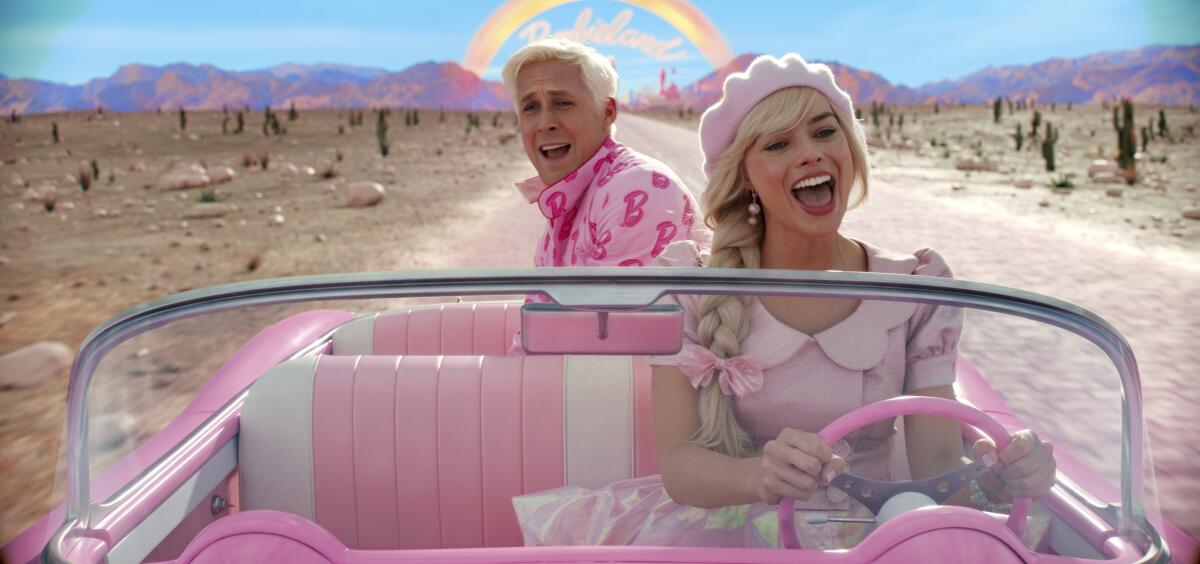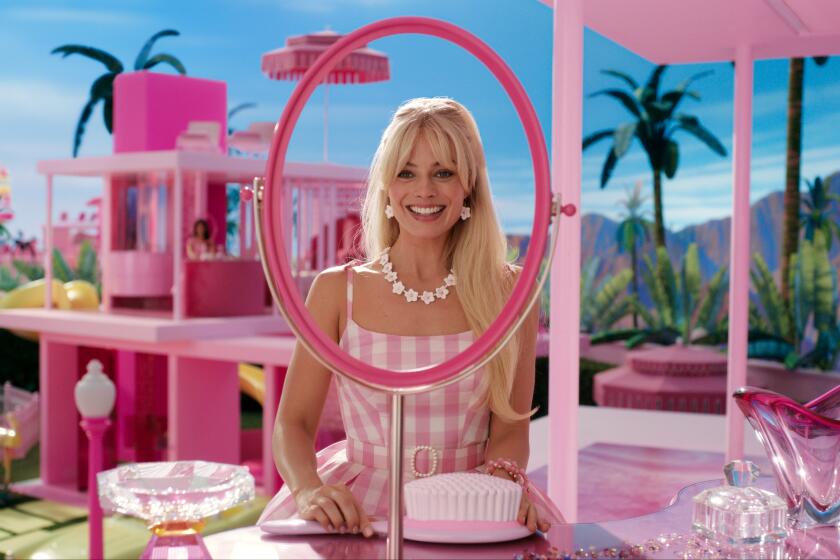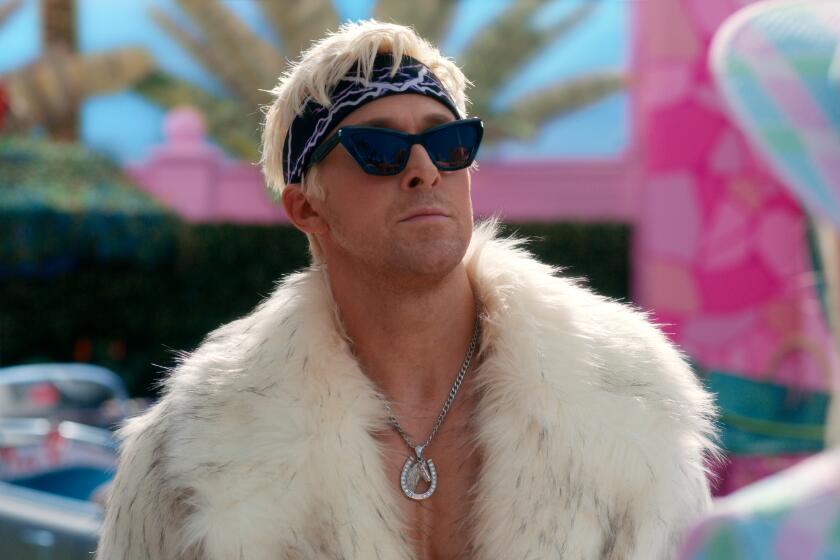Lebanon and Kuwait move to ban ‘Barbie’ over ‘homosexuality’ and ‘unacceptable behavior’

- Share via
Government officials in Lebanon and Kuwait have moved to ban Warner Bros.‘ “Barbie” after determining that the billion-dollar blockbuster does not align with the countries’ “values” and “beliefs.”
Lebanon’s culture minister, Mohammad Mortada, has urged the country’s general security agency to prevent the movie from playing there, the Associated Press reported Thursday. Mortada said screening “Barbie” in Lebanon would “contradict values of faith and morality” and “promote homosexuality.”
Meanwhile, the Kuwaiti ministry of information’s committee on cinematic censorship announced Tuesday that “Barbie” has been banned from opening in the country. The committee ruled that the comedy about life-sized dolls promotes “ideas and beliefs that are alien to the Kuwaiti society and public order,” according to a statement published by state-run news agency KUNA.
Politics and China play a major part in the reason the the live-action ‘Barbie’ has been banned from theaters in Vietnam ahead of its July 21 release.
The head of the committee, Lafy Al-Subei’e, noted that the government typically opts to censor select scenes “that run counter to public ethics,” but “Barbie” has been blocked altogether for generally promoting “alien concepts” and “unacceptable behavior.” The A24 horror hit “Talk to Me” has also been prohibited from playing in Kuwait for the same reasons given by the committee.
“Barbie” is scheduled to open in Saudi Arabia, Bahrain and the United Arab Emirates on Thursday.
According to the Hollywood Reporter, “Talk to Me” was banned in Kuwait not due to the contents of the film, but because of the cast, which includes transgender actor Zoe Terakes. Terakes responded to the report in an Instagram post pointing out that the thriller “doesn’t have queer themes” or “ever mention” their transgender identity.
The Philippines considered joining Vietnam’s ‘Barbie’ ban over a controversial map of the South China Sea. It’s now allowing the film to screen.
“I am a trans actor who happened to get the role,” Terakes wrote. “I’m not a theme. I’m a person. Kuwait has banned this film due to my identity alone. Reportedly, this is a first.
“This is a new precedent. It is targeted and dehumanising and means to harm us. As much as it is very sad to be on the receiving end of this, what is even more heartbreaking is what this precedent means for the queer and trans people of Kuwait.”
The cast of “Barbie” — which contains no overtly sexual scenes or references to LGBTQ+ rights — also includes a trans actor, Hari Nef.
“Eliminating trans actors on screens will not eliminate trans people (as much as the government of Kuwait wishes it would) but it will eliminate a lot of hope,” Terakes said. “And hope is such a large part of how we live as marginalised people.”
The film is a rare product of mainstream culture that invites men to reimagine masculinity for their own sake.
Lebanon and Kuwait are not the first countries to forbid “Barbie” from opening in theaters.
The picture was previously banned in Vietnam for depicting a map with a dotted line that China uses when drawing its borders in the South China Sea. Southeast Asian countries such as Vietnam and the Philippines — along with the United States and much of the international community — have disputed the border line.
Warner Bros. declined to comment. Front Row Media, which distributes “Talk to Me” in the Middle East, did not immediately respond to The Times’ request for comment.
Times staff writer Jonah Valdez and the Associated Press contributed to this report.
More to Read
Only good movies
Get the Indie Focus newsletter, Mark Olsen's weekly guide to the world of cinema.
You may occasionally receive promotional content from the Los Angeles Times.














